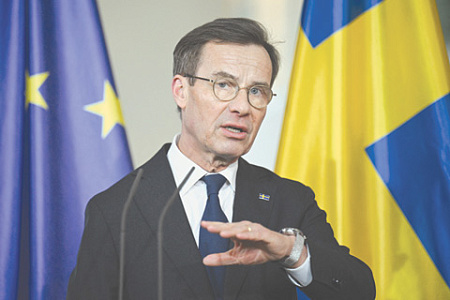
Swedish Prime Minister Ulf Kristersson has ignited a fierce debate on the future of governance by admitting to regularly consulting artificial intelligence, including ChatGPT, for a “second opinion” on political matters. The revelation, made in an interview with Dagens Industri, confirmed that this practice is not isolated to the premier but extends to his colleagues in government, prompting a wave of criticism from academics and media who question the implications of AI’s entry into the halls of power.
The growing use of AI by world leaders marks a new, uncharted territory in international relations. While neural networks offer undeniable efficiencies—analyzing vast documents, translating texts, and providing rapid answers to complex queries—their integration into political decision-making introduces profound risks. The core of the controversy lies in balancing the allure of technological assistance with the fundamental principles of accountability and security in statecraft.
A primary concern is the reliability and security of these AI systems. Neural networks are not infallible truth machines but probabilistic models trained on massive datasets, whose outputs can be unpredictable even to their creators. Entrusting them with matters of state is a gamble. Furthermore, the question of data security looms large. While the Prime Minister’s office asserts that no confidential information is shared, the potential for sensitive data leaks from officials seeking AI “consultations” presents a significant national security vulnerability.
Beyond immediate security threats lies a more subtle psychological risk: the potential for over-reliance. As politicians delegate more analysis and information gathering to AI, the temptation to use these tools for critical decisions could erode human judgment. The speed of an AI response may become more attractive than the considered, and often slower, counsel of government experts, potentially leading to a scenario where leaders become dependent on algorithmic validation for policies affecting millions.
Simultaneously, the weaponization of AI to manipulate public opinion is a well-documented reality. AI-powered bots have already been used to create illusions of public support and influence election outcomes in countries like the United States and Brazil. This dual-use nature of AI technology complicates the discussion, as it is both a potential administrative tool and a potential threat to the democratic process itself.
The legislative response to this technological surge is struggling to keep pace. The European Union’s landmark AI Act, passed in 2024 but not fully effective until 2026, represents one of the first major attempts at regulation. It bans AI for social scoring and manipulative purposes and requires that AI-generated content be clearly labeled. However, Prime Minister Kristersson has expressed skepticism towards such measures, labeling them as overly restrictive and a hindrance to innovation.
Ultimately, the issue transcends technology and touches upon the core of democratic legitimacy. As Virginia Dignum, a computer science professor at Umeå University, pointedly remarked, the Swedish people “did not vote for ChatGPT.” Her statement encapsulates the central dilemma facing nations worldwide: citizens elect human leaders for their judgment, empathy, and accountability—qualities that, for now, cannot be delegated to an algorithm.
